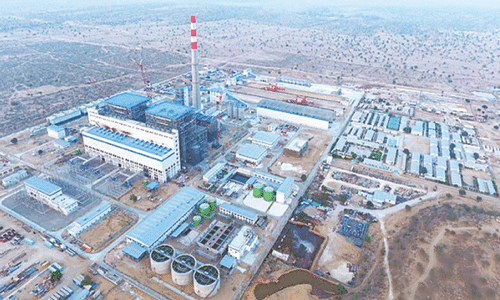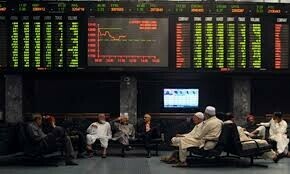ISLAMABAD: Adviser to the Prime Minister on Economic Affairs Dr Miftah Ismail on Friday said that the Federal Budget 2018-19 would be unveiled on April 27 followed by provincial budgets to ensure their approvals by respective assemblies before May 31.
“We will present [federal] budget on April 27 because our term completes on May 31 and so that the provinces could also announce their budgets,” he said while speaking at a news conference with Minister for Interior and Planning and Development Ahsan Iqbal and Minister of State for Finance Rana Afzal Khan.
Mr Ismail said Ramazan was also beginning by mid-May and the budgetary approval process had to be completed before the parliamentary term came to an end. He said the federal government had already discussed the budget schedule with the provincial governments and political parties and they had agreed to it.
Responding to a question about the external financing gap before June 30 and the proposed launch of $1.5 billion bond that he held back recently, the adviser said the “State Bank of Pakistan will have $12.5bn by end-June”, but added that he could not provide all the details at this stage except that some borrowing would have to be made.
He said the government would contain fiscal deficit at around five per cent and would not allow it to go beyond 5.2pc at any cost, adding that the previous government left it at 8.2pc.
The press conference was called to present achievements made by the Pakistan Muslim League-Nawaz government over the last five years.
Mr Ismail said the GDP growth rate was expected to reach 6pc this year from about 3pc when the PML-N government came to power five years ago, while revenue increased from Rs1.946 trillion to Rs4.103trn. This meant over Rs2trn of additional revenue had come into the system which, along with GDP growth, was helping create additional jobs, he said, adding that if elected to power again, the PML-N would take the economic growth rate to 7-8pc.
Mr Ismail said the improved energy supply — about 10,000MW of electricity and 1,200 million cubic feet of gas per day — had addressed key bottleneck holding back industrial performance.
He said transfers to the provinces had increased to Rs2.4trn from Rs1.2trn four years ago, adding that the Public Sector Development Programme size almost tripled to Rs1trn from Rs348bn.
Responding to a question about the debt situation, he said domestic debt stood at 38.8pc of GDP in May 2013, which increased by 2.3pc to 41.1pc, while external debt declined from 21.4pc to 20.6pc. The overall public debt increased from 60.2pc in 2013 to 61.6pc at present, but it should be appreciated that debt sustainability indicators had improved with longer maturity profile and reduced exposure to interest rate risk, he added.
Responding to another question, Mr Ismail conceded that current account deficit had increased from 2.3pc of GDP to over 4.5pc, but the government wanted to ensure faster growth momentum to cater for rising youth population.
The positive thing, he said, was that exports had started growing faster than imports as February witnessed a 15pc growth in exports, compared to 8pc in imports, but hastened to add that the government did not want to discourage critical imports necessary for any developing economy.
About criticism by the Pakistan Peoples Party of increase in petroleum prices, Mr Ismail said the petrol price currently stood at Rs88.07 per liter against Rs106 in March 2013 and that of diesel at Rs98 against Rs113 in 2013. He said gas and electricity prices for lower categories of poor consumers remained stable while these were slightly increased for big and industrial consumers. Likewise, he added, credit to the private sector had reached Rs748bn at the end of last year and Rs312bn in seven months of the current year, compared to a negative Rs7.8bn in 2013.
In reply to a question about circular debt, Mr Ismail said the Economic Coordination Committee of the cabinet had approved a settlement plan. He said the total payables to independent power producers currently stood at Rs213bn of which they had to return about Rs50bn to the Pakistan State Oil. The net gap was about Rs150bn that would also be settled over the next two to three weeks.
Published in Dawn, March 10th, 2018















































Dear visitor, the comments section is undergoing an overhaul and will return soon.